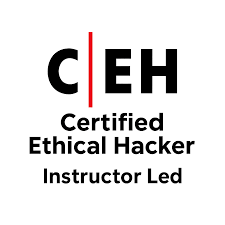Palo Alto Training – Learn Palo Alto Firewalls in 2025

1. Introduction In a world increasingly dependent on digital infrastructure, cybersecurity has become a cornerstone of safety for governments, organizations, and individuals alike. The digital revolution has brought incredible convenience—but also unprecedented risk. As cyber threats become more sophisticated, the demand for skilled cybersecurity professionals grows. Among them, Certified Ethical Hackers (CEHs) play a crucial […]

In a world increasingly dependent on digital infrastructure, cybersecurity has become a cornerstone of safety for governments, organizations, and individuals alike. The digital revolution has brought incredible convenience—but also unprecedented risk. As cyber threats become more sophisticated, the demand for skilled cybersecurity professionals grows. Among them, Certified Ethical Hackers (CEHs) play a crucial role. These professionals think like malicious hackers but act within legal boundaries to secure systems before they can be compromised.
This article provides a comprehensive introduction to Certified Ethical Hacking, exploring what it is, how it works, who becomes a CEH, and why it matters in today’s threat landscape.
Ethical hacking, often referred to as “white-hat hacking,” involves the same tools, techniques, and processes that hackers use—but with permission and for a constructive purpose. The goal is simple: find vulnerabilities before the bad guys do.
Ethical hackers simulate real-world cyberattacks on networks, systems, web applications, and data infrastructures. Their insights help organizations fortify defenses, reduce attack surfaces, and ensure compliance with industry regulations.
Ethical hacking is performed under legal agreements, such as penetration testing contracts, non-disclosure agreements (NDAs), and explicit authorization from system owners. Without this, any hacking activity is considered illegal under laws like the Computer Fraud and Abuse Act (CFAA) or the General Data Protection Regulation (GDPR) in Europe.
The Certified Ethical Hacker (CEH) is a globally recognized credential provided by the EC-Council (International Council of E-Commerce Consultants). First launched in 2003, CEH certifies individuals in the specific network security discipline of ethical hacking from a vendor-neutral perspective.
As of 2025, the latest version is CEH v12, which introduced more practical labs, a new learning path called “Learn, Certify, Engage, Compete,” and enhanced coverage of cloud and IoT security.
The CEH certification covers a broad spectrum of cybersecurity topics across 20+ modules, including but not limited to:
Foundational concepts, types of hackers, hacking phases, and legal considerations.
Techniques for gathering intelligence about a target system—DNS queries, WHOIS lookups, and social engineering.
Tools and methods for network scanning, vulnerability detection, and port enumeration.
Techniques for extracting usernames, group names, and shared resources.
Password cracking, privilege escalation, and backdoor implementation.
Understanding viruses, worms, Trojans, ransomware, and how they propagate.
Packet capturing and analysis with tools like Wireshark.
Exploiting human psychology to gain access to systems and data.
Flooding systems with traffic to crash or disable services.
Taking over user sessions in real-time.
Attacking misconfigured web servers and exploiting vulnerabilities like SQL injection, XSS, and CSRF.
Hacking Wi-Fi, Bluetooth, mobile devices, and Internet of Things infrastructure.
Focus on securing virtual environments and hybrid cloud systems.
CEH professionals are trained to use hundreds of hacking tools, including:
Knowing how to use, detect, and defend against these tools is what sets CEHs apart from traditional IT professionals.
The CEH is considered a mid-level certification, often pursued after foundational training like CompTIA Security+ or before advanced certs like OSCP or CISSP.
With growing threats such as ransomware, AI-powered attacks, supply chain compromises, and nation-state cyber warfare, organizations can no longer afford to wait until after an attack to secure their infrastructure.
Ethical hacking is part of a proactive cybersecurity strategy—it identifies weaknesses before attackers can exploit them.
| Certification | Focus Area | Difficulty | Practical Component |
|---|---|---|---|
| CEH | Broad ethical hacking | Medium | Optional (CEH Practical) |
| OSCP | Advanced pen testing | High | Yes (Hands-on) |
| CompTIA Pentest+ | Intermediate pen testing | Medium | Some practicals |
| CISSP | Security management | High | No hands-on |
While CEH offers a broad overview, certifications like OSCP dive deep into hardcore exploitation and red teaming.
Being a CEH is not just about knowledge—it’s about responsibility. Ethical hackers must:
The Certified Ethical Hacker (CEH) program stands as a beacon for cybersecurity professionals who want to “hack legally and ethically.” In a digital era fraught with threats, the CEH offers not just technical skills, but a mindset—one that sees vulnerabilities not as weaknesses, but as opportunities to build stronger defenses.
Whether you’re a budding security analyst or a seasoned IT professional, pursuing the CEH certification is a step toward a career that’s both challenging and meaningful. As cyber threats grow more aggressive, the need for ethical hackers has never been greater. Are you ready to think like a hacker and act like a hero?
Get certified with industry-leading cybersecurity certifications from EC-Council, PECB, Palo Alto Networks, and more.

Learn from world-class instructors Collaborate with top professionals Advanced training...

The CEH is the world's leading cybersecurity certification, recognized by...

Onsite training course Led by an instructor Interactive sessions

Asynchronous, self-study environment Video-streaming format Flexible learning schedule
Adding {{itemName}} to cart
Added {{itemName}} to cart

